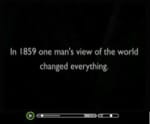Evidence For Intelligent Design
Evidence for Intelligent Design
So, how do I connect the dots between the organic and inorganic world? Evidence for Intelligent Design is obvious upon close examination of any mechanical machine. The concept and design inherent in a machine, whether simple or complex, is self-evident. Whether a machine is high quality or low quality, its designer is both necessary and apparent. Information Theory states that concept and design can only result from a mind. Even the diminished quality of a poorly constructed machine cannot obscure the necessity of an intelligent designer.
Machines, as defined by French Biochemist and Nobel Laureate Jacques Lucien Monod (1910-1976), are "purposeful aggregates of matter that, utilizing energy, perform specific tasks." 1 By this authoritative definition, living systems are also recognized as machines. A living organism fulfills the definition of a machine all the way down to the molecular level.
Back in the mid-1700's, David Hume successfully invalidated the "machine" analogy in biologic systems because we could only guess at what existed at the molecular level. 2 However, the phenomenal discoveries in the last few decades have finally and unequivocally demonstrated that living systems are, in fact, machines - even to the deepest, molecular level! 3
- It has only been over the past twenty years with the molecular biological revolution and with the advances in cybernetic and computer technology that Hume's criticism has been finally invalidated and the analogy between organisms and machines has at last become convincing… In every direction the biochemist gazes, as he journeys through the weird molecular labyrinth, he sees devices and appliances reminiscent of our own twentieth-century world of advanced technology. 4
However, I was now seeing a tremendous inconsistency...
- When it comes to the origin of life there are only two possibilities: creation or spontaneous generation. There is no third way. Spontaneous generation was disproved one hundred years ago, but that leads us to only one other conclusion, that of supernatural creation. We cannot accept that on philosophical grounds; therefore, we choose to believe the impossible: that life arose spontaneously by chance! 5
- In fact, evolution became in a sense a scientific religion; almost all scientists have accepted it, and many are prepared to 'bend' their observations to fit with it.6
Next Page!


